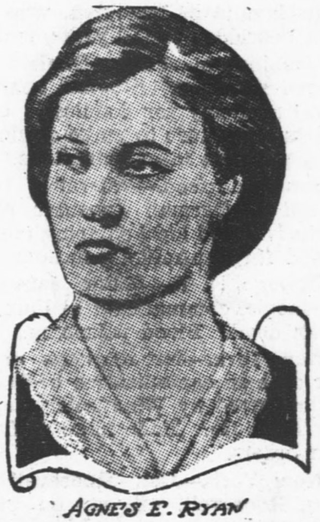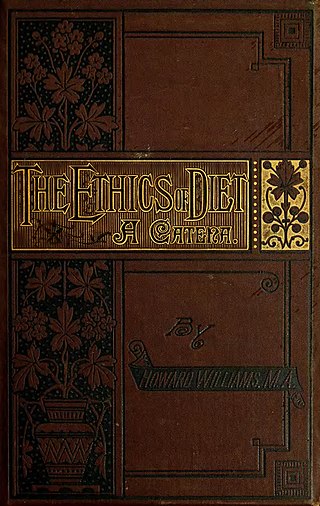
Veganism is the practice of abstaining from the use of animal products—particularly in diet—and an associated philosophy that rejects the commodity status of animals. A person who follows the diet or philosophy is known as a vegan.

Vegetarianism is the practice of abstaining from the consumption of meat. It may also include abstaining from eating all by-products of animal slaughter.

Carol J. Adams is an American writer, feminist, and animal rights advocate. She is the author of several books, including The Sexual Politics of Meat: A Feminist-Vegetarian Critical Theory (1990) and The Pornography of Meat (2004), focusing in particular on what she argues are the links between the oppression of women and that of non-human animals. She was inducted into the Animal Rights Hall of Fame in 2011.
Sex-positive feminism, also known as pro-sex feminism, sex-radical feminism, or sexually liberal feminism, is a feminist movement centering on the idea that sexual freedom is an essential component of women's freedom. They oppose legal or social efforts to control sexual activities between consenting adults, whether they are initiated by the government, other feminists, opponents of feminism, or any other institution. They embrace sexual minority groups, endorsing the value of coalition-building with marginalized groups. Sex-positive feminism is connected with the sex-positive movement. Sex-positive feminism brings together anti-censorship activists, LGBT activists, feminist scholars, producers of pornography and erotica, among others. Sex-positive feminists generally agree that prostitutes themselves should not be criminalized.

Richard H. Schwartz is a professor emeritus of mathematics at the College of Staten Island; president emeritus of the Jewish Vegetarians of North America (JVNA); and co-founder and coordinator of the Society of Ethical and Religious Vegetarians (SERV). He is best known as a Jewish vegetarian activist and advocate for animal rights in the United States and Israel.

Patricia Hill Collins is an American academic specializing in race, class, and gender. She is a distinguished university professor of sociology emerita at the University of Maryland, College Park. She is also the former head of the Department of African-American Studies at the University of Cincinnati, and a past president of the American Sociological Association (ASA). Collins served in 2009 as the 100th president of the ASA – the first African-American woman to hold this position.

The earliest records of vegetarianism as a concept and practice amongst a significant number of people are from ancient India, especially among the Hindus and Jains. Later records indicate that small groups within the ancient Greek civilizations in southern Italy and Greece also adopted some dietary habits similar to vegetarianism. In both instances, the diet was closely connected with the idea of nonviolence toward animals, and was promoted by religious groups and philosophers.
Women have played a central role in animal advocacy since the 19th century. The animal advocacy movement – embracing animal rights, animal welfare, and anti-vivisectionism – has been disproportionately initiated and led by women, particularly in the United Kingdom. Women are more likely to support animal rights than men. A 1996 study of adolescents by Linda Pifer suggested that factors that may partially explain this discrepancy include attitudes towards feminism and science, scientific literacy, and the presence of a greater emphasis on "nurturance or compassion" amongst women. Although vegetarianism does not necessarily imply animal advocacy, a 1992 market research study conducted by the Yankelovich research organization concluded that "of the 12.4 million people [in the US] who call themselves vegetarian, 68% are female, while only 32% are male".

Zillah R. Eisenstein is an American political theorist and gender studies scholar and Emerita Professor of the Department of Politics at Ithaca College, Ithaca, New York. Specializing in political and feminist theory; class, sex, and race politics; and construction of gender, Eisenstein is the author of twelve books and editor of the 1978 collection Capitalist Patriarchy and the Case for Socialist Feminism, which published the Combahee River Collective statement.

Ecofeminism is a branch of feminism and political ecology. Ecofeminist thinkers draw on the concept of gender to analyse the relationships between humans and the natural world. The term was coined by the French writer Françoise d'Eaubonne in her book Le Féminisme ou la Mort (1974). Ecofeminist theory asserts a feminist perspective of Green politics that calls for an egalitarian, collaborative society in which there is no one dominant group. Today, there are several branches of ecofeminism, with varying approaches and analyses, including liberal ecofeminism, spiritual/cultural ecofeminism, and social/socialist ecofeminism. Interpretations of ecofeminism and how it might be applied to social thought include ecofeminist art, social justice and political philosophy, religion, contemporary feminism, and poetry.

Michael Huemer is a professor of philosophy at the University of Colorado, Boulder. He has defended ethical intuitionism, direct realism, libertarianism, veganism, the repugnant conclusion, and philosophical anarchism.
Vegetarian ecofeminism is an activist and academic movement which states that all types of oppression are linked and must be eradicated, with a focus on including the domination of humans over nonhuman animals. Through the feminist concept known as intersectionality, it is recognized that sexism, racism, classism, and other forms of inter human discrimination are all connected. Vegetarian ecofeminism aims to include the domination of not only the environment but also of nonhuman animals to the list. Vegetarian ecofeminism is part of the academic and philosophical field of ecofeminism, which states that the ways in which the privileged dominates the oppressed should include the way humans dominate nature. A major theme within ecofeminism is the belief that there is a strong connection between the domination of women and the domination of nature, and that both must be eradicated in order to end oppression.

Agnes Edna Ryan was an American pacifist, vegetarian, suffragist and managing editor of Woman's Journal, 1910-1917.
Vegan studies or vegan theory is the study of veganism, within the humanities and social sciences, as an identity and ideology, and the exploration of its depiction in literature, the arts, popular culture, and the media. In a narrower use of the term, vegan studies seek to establish veganism as a "mode of thinking and writing" and a "means of critique".

Jacques Louis Buttner was a French American physician and vegetarianism activist.

An Essay on Abstinence from Animal Food, as a Moral Duty is a book on ethical vegetarianism and animal rights written by Joseph Ritson, first published in 1802.

Charles Walter Forward was a British animal rights and vegetarianism activist and historian of vegetarianism.

The Ethics of Diet: A Catena of Authorities Deprecatory of the Practice of Flesh-eating is an 1883 book by Howard Williams, on the history of vegetarianism. The book was influential on the development of the Victorian vegetarian movement.

Carol Marie Lazzaro-Weis was an American scholar of Romance languages. She was a professor of French and Italian at Southern University from 1984 to 2003, and at the University of Missouri from 2003 to 2017. From 2009 to 2015, she was president of the American Association for Italian Studies.














